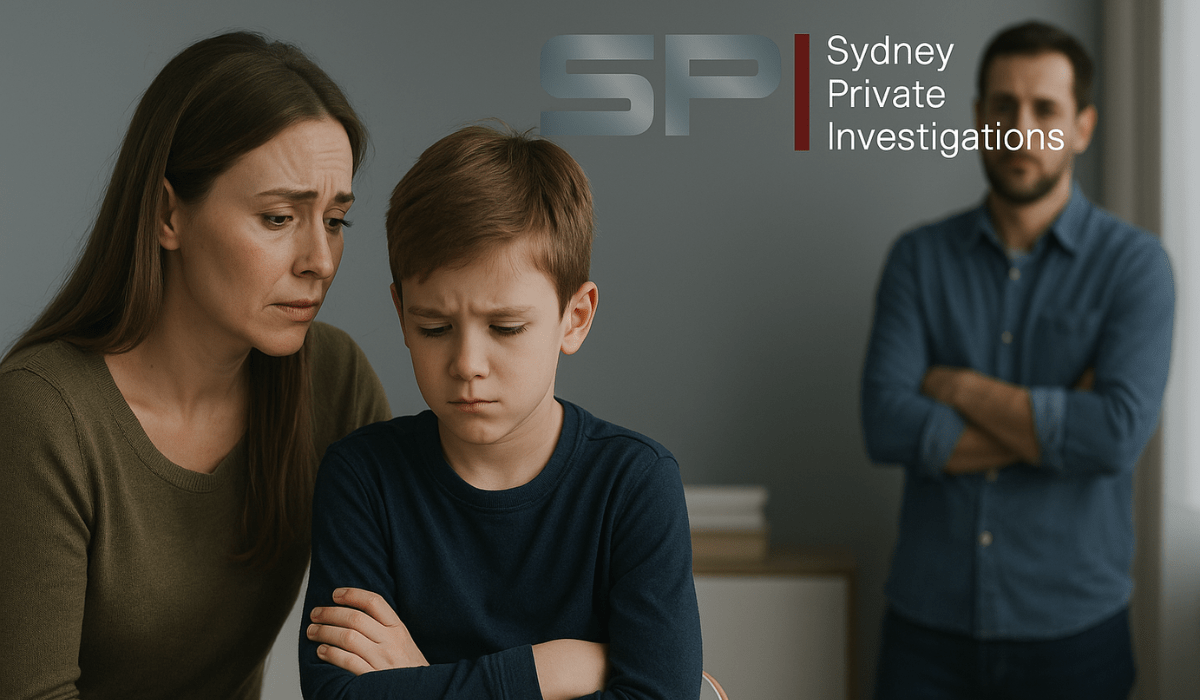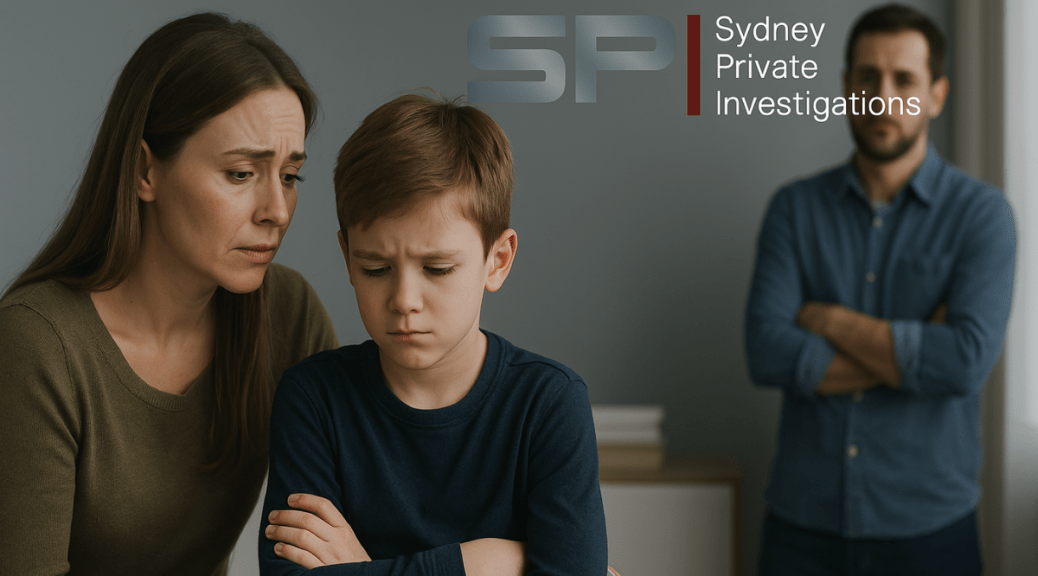You’ve made a mistake, maybe it was infidelity, maybe something else and now the divorce is real. But what’s keeping you up at night isn’t the paperwork or the legal fees. It’s the question you can’t shake: How do I tell my children that I’m the reason our family is splitting up? That you’re the parent who crossed a line, broke trust, or hired that private investigator in Sydney to uncover truths you weren’t ready to face?
This isn’t just about what happened, it’s about what happens next. Your kids are watching, listening, and trying to make sense of something they didn’t choose. You know you need to talk to them. You just don’t know how to say it without breaking their hearts. This post is here to help you find the words, the right tone, and most importantly, a way forward that helps them feel loved, supported, and safe even when things are changing.
Should You Be Honest With Your Kids Even If You’re at Fault?
It’s natural to want to protect your kids from pain, especially when you know your actions like cheating or crossing a boundary contributed to the divorce. But hiding the truth or brushing it off often leaves children more confused and unsettled. They pick up on tension, they hear whispers, and they fill in the blanks themselves.
Honesty builds trust. It shows your kids that even in hard times, they can count on you to be real with them. That doesn’t mean unloading every detail. It means being clear in a way that’s right for their age, and showing them through your words and actions that you’re still their parent, and they’re still loved.
Take a dad, for example, who admitted to his teenage son that he made choices that hurt the marriage. He didn’t go into graphic detail he simply said, “I made a mistake. It hurt our family, and I’m taking responsibility.” That small act of truth gave his son something solid to hold onto in a confusing time.
Key Points to Keep in Mind
-
Children need stability more than total transparency Your job isn’t to confess everything. It’s to help your kids feel safe and steady as things change around them. Keep routines, show up when you say you will, and stay emotionally present.
-
It’s not about confessing, it’s about clarity and compassion A calm, simple explanation that respects their age and feelings does more good than a tearful confession. Focus on what helps them feel seen, not what makes you feel better.
-
Avoid casting the other parent as “the victim” Even if your partner was hurt, your child doesn’t need to see their parents as heroes or villains. They need to see that both of you are still their parents, working to care for them in different ways.
What Should I Tell My Child at Their Age?
Every child sees divorce through a different lens depending on how old they are. What a toddler needs to hear is very different from what a teenager can handle. Speaking to their level helps them feel heard and understood, and it avoids giving too much too soon.
Ages 0–5: Keep It Simple and Reassuring
Young children won’t understand what cheating or separation really means, and they don’t need to. What they need to know is that mommy or daddy won’t live in the same house, but they’re still loved. Saying things like “We’re still your family, just living in two homes now” helps them feel secure. A familiar bedtime story, a consistent schedule, and lots of hugs go further than words.
Ages 6–11: Provide Reassurance With Gentle Honesty
At this age, kids often feel like they’ve done something wrong. It’s important to say clearly, “This is not your fault.” You might add, “We had some grown-up problems that we couldn’t fix, but we both love you very much.” One mum shared that after telling her daughter this, they made a weekly lunch date to stay connected. That routine gave her daughter something to look forward to when things felt uncertain.
Ages 12–17: Acknowledge Their Awareness
Teens know more than they let on. They’ll notice tension and hear parts of adult conversations. They might even ask tough questions. Be honest without trying to justify your choices. If cheating played a role, you can say, “I made a choice I regret. I’m working to be better.” Let them express anger or keep quiet either way, show them you’re not going anywhere.
Adult Children: When Full Honesty Might Be Considered
With adult children, you can often have a more direct conversation. Still, it helps to ask first: “Are you open to talking about this?” Share only what supports the relationship moving forward. One parent told her grown son that she had made decisions that hurt the marriage but wanted to be honest so they could rebuild trust. He didn’t say much at the time but later thanked her for not pretending everything was fine.
What Not to Do When Explaining Divorce to Kids
Avoid These Common Mistakes
When emotions are high, it’s easy to let things slip or say too much. But turning your child into your emotional sounding board can put pressure on them they’re not ready for. Sharing how guilty or sad you feel might feel honest, but it shifts the emotional burden onto them.
Another common mistake is treating your child like a secret-keeper. If you ask them not to tell the other parent something, it places them in the middle, and that can make them anxious or withdrawn. And finally, avoid painting yourself as either the brave truth-teller or the one who suffered the most. Kids don’t want to choose sides, they want both parents to be safe spaces.
Keep Boundaries in Place
Your child doesn’t need to know every detail to understand that things are changing. Saying, “We’re separating because I made choices that hurt the relationship,” is often enough. Avoid dragging them into adult conflicts, and don’t share things that make them feel like they need to fix the problem.
A father once admitted he told his 10-year-old about the affair because he felt “she deserved to know.” That conversation left her anxious for months, feeling like she had to comfort both parents. A few well-intentioned words can carry weight for years, so keep it simple, focused, and centered on their well-being.
What Happens After You Tell Them?
Some kids cry right away. Others act like nothing’s changed, then melt down two weeks later. Some may shut their door and stay quiet, while others start asking questions you’re not ready for. There’s no script for how they’ll respond but how you show up afterward makes all the difference.
One mother said her son barely reacted when she told him about the divorce. It wasn’t until his school called weeks later about behavior issues that she realized he had been holding it in. That’s why staying connected, even after the conversation feels “over,” is so important.
Support Strategies After the Conversation
Let them feel what they feel without judgment. You can say, “It’s okay to be sad or even mad at me. I’m here if you want to talk.” Then give them time. Check in without pushing, and stick to routines that help them feel steady. Even things like regular bedtimes and favorite snacks send the message that they’re still cared for.
Kids tend to settle emotionally when their world feels predictable. That structure is what gives them space to heal and talk on their own terms.
Can Children Forgive a Parent Who Made a Mistake?
The short answer is yes. But it doesn’t happen because you said the right thing once. It happens because you keep showing up after things have been said. Kids may need time to rebuild their trust in you and that’s okay. Forgiveness doesn’t come with a timeline.
A teenage daughter once told her father she didn’t want to see him after learning he had been unfaithful. Instead of pushing, he gave her space, sent short weekly texts just checking in, and waited. A few months later, she replied. That slow rebuild happened because he respected her pace, not his own need for closure.
Ways to Rebuild Trust
Trust grows in small, steady ways. Be where you say you’ll be. Keep promises, even little ones. If they don’t want to talk, don’t push, just remind them that the door’s open. Showing consistency tells them you’re serious about being different, not just saying you are.
Being accountable in your actions speaks louder than explanations. Over time, it shows your child that while you made a mistake, you’re still a parent they can count on.
When to Consider Family Counseling or Outside Help
Sometimes love and good intentions aren’t enough to help your child make sense of what’s happening. If your child is pulling away from friends, refusing to go to school, or acting out in ways that feel new, those could be signs they’re struggling more than they’re letting on.
Family counseling gives everyone space to talk about hard things with someone who can guide the conversation in a healthy way. Kids often find it easier to express feelings to someone who isn’t directly involved. One couple shared how their nine-year-old, who had stopped talking at home, opened up about her fears in just two sessions with a child therapist.
Therapy isn’t just for kids. It can also help parents find new ways to work together, even after trust has been broken. If you’re unsure how to co-parent or what to say in front of your child, a professional can help you set healthy patterns.
With more families turning to telehealth since COVID, getting support is more flexible than ever. You can now connect with therapists from home, making it easier to start when everyone’s schedule feels tight or emotions are still fresh.













